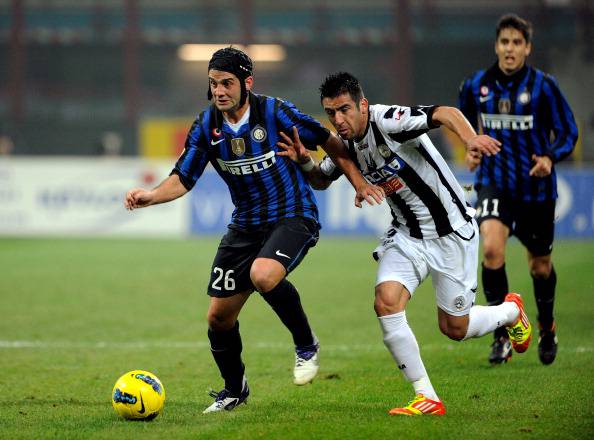The Silent Revolution: Chivu`s Quest to Remold Inter Milan
The Giuseppe Meazza had barely emptied after Inter Milan`s surprising defeat to Udinese when head coach Cristian Chivu stepped into the press room. His words, delivered with a measured calm, carried the weight of a deeper message – a quiet declaration of intent amidst the immediate disappointment. This wasn`t just a post-match analysis; it was a subtle, yet profound, outline of the monumental task he faces in transforming a team steeped in recent success but perhaps, also, in ingrained habits.
Chivu`s remarks hinted at the inherent challenge of football management: «It`s hard to change habits deeply rooted over the years. Now I have to transmit my ideas to those I have.» And, with an almost surgical precision, he added, «My goal is to remove some flaws in game management.» Behind the diplomatic veil, the message was clear: the issues observed on the pitch weren`t novel. They were echoes of an old tune, now played under a new conductor who demands a different rhythm.
Ghost in the Defensive Machine: Unpicking Collective Vulnerability
The most immediate and glaring «flaw» from the Udinese clash manifested in Inter`s defense. Another goal conceded due to what appeared to be an individual misstep by Bisseck, who momentarily forgot the cardinal rule of closing down a shooter, allowing Atta to strike. However, to pin the blame solely on one individual would be a tactical fallacy. The sequence that led to the goal began further up the field, a collective lapse in concentration and execution.

The moment Inter Milan lost possession in build-up, leading to Udinese`s goal.
A misplaced pass from Bastoni on the left flank, intended for Thuram, was intercepted. This single error unspooled a swift Udinese transition, catching Inter`s defensive line in a moment of disarray. This isn`t just about Bisseck`s posture; it’s about the team`s instinct for an aggressive, often frenetic, forward push in possession, sometimes at the expense of defensive solidity during transitions. Chivu’s emphasis on «game management» is a direct response to this. He aims to instill principles of rapid re-aggression, high pressing, and verticality, ensuring that while the team seeks depth, it doesn`t leave its back door ajar.
Breaking the Mold: The Quest for Tactical Fluidity
Inter Milan, under previous stewardship, carved out a formidable identity. Two Champions League finals in three years, a Scudetto, and a cabinet full of domestic cups speak volumes. Much of this success was built upon a recognizable system: the unwavering 3-5-2 formation. It was a tactical security blanket, providing harmony and a clear approach. Yet, in modern football, predictability can be a double-edged sword.
Chivu, it appears, is determined to introduce a new vocabulary to Inter`s tactical lexicon – that of fluidity and in-game adaptation. Against Udinese, trailing 2-1 with twenty minutes left, he deployed both a 3-4-2-1 and, more audaciously, a 4-2-4. The sight of four strikers – including Thuram and Bonny pushed wide – was a clear signal of his intent to shake things up. It didn`t yield immediate results, a testament to how deeply ingrained the old patterns are. One can almost hear the collective sigh of the squad, grappling with a tactical Rosetta Stone after years of speaking a singular dialect.
«It will take time to instill this mentality in a group accustomed to something completely different.»
This isn`t merely about changing numbers on a whiteboard; it’s about reshaping the players` cognitive approach to the game, empowering them to think beyond a fixed structure and react dynamically to unfolding scenarios. It’s a significant cultural shift, demanding not just physical execution but mental agility.
The Road Ahead: Patience, Persistence, and the Promise of a New Era
Cristian Chivu`s post-match comments were not an excuse but a plea for understanding and, more importantly, for time. He inherited a squad with a rich recent history but also with what he perceives as fundamental «difettucci» – little flaws – that need meticulous polishing. The challenge of transforming a highly successful team is arguably more complex than rebuilding a struggling one; the resistance to change, however subtle, is often amplified by past glories.
For Inter Milan, this marks the beginning of a fascinating tactical evolution. It will be a marathon, not a sprint. The early stumbles, like the one against Udinese, are perhaps unavoidable growing pains as Chivu attempts to embed his philosophy of aggression, verticality, and tactical versatility into the fabric of the team. The success of this silent revolution will not only depend on Chivu`s acumen but also on the players` willingness to unlearn old habits and embrace a potentially more dynamic, albeit initially uncomfortable, future.

